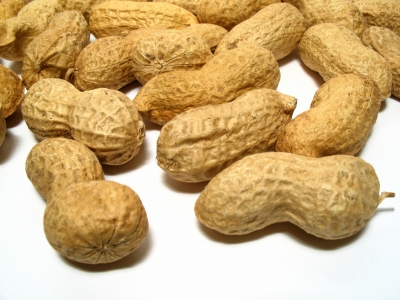 Spices contain an impressive list of plant-derived chemical compounds that are known for their anti-disease and health promoting properties.
Spices contain an impressive list of plant-derived chemical compounds that are known for their anti-disease and health promoting properties.Since ancient times for these anti-inflammatory, carminative, anti-flatulent properties, spices are healthier than we think.
Salt: This is the king of spices; no meal is complete without it. The unrefined version of salt is known as rock salt and the refined form is called table salt. Salt is involved in regulating the water content of the body. Too much or too little salt in the diet can lead to muscle cramps, dizziness, or electrolyte disturbance, which can cause neurological problems. Excessive intake of salt is also linked to some cardio vascular diseases, blood pressure. Salt is found beneficial in the treatment of edema or water retention issues.
Black pepper: The peppercorn plant is native to the tropical evergreen rain forests of Kerala. Black peppercorns contain minerals like potassium, calcium, zinc, manganese, iron, and magnesium. Potassium is an important component of cell and body fluids that helps control heart rate and blood pressure. They are also a good source of anti-oxidant vitamins such as vitamin-C and vitamin-A. Excessive consumption of black pepper can cause gastrointestinal irritation, and bleeding from the ulcer sites. Therefore, these should be avoided in individuals with stomach ulcers, or ulcerative colitis conditions.
Cloves: Cloves are well recognized all over the world for their medicinal and culinary qualities. They are known to have antioxidant, anti-septic, local anesthetic, anti-inflammatory properties. The spice also contains good amounts of minerals like potassium, manganese, iron, selenium and magnesium. Clove oil is also used in aromatherapy. Eating large quantities of clove can cause gastrointestinal irritation, central nervous system disorders. It is also said that eating clove should be avoided during pregnancy.
Mustard seeds: This is a very popular spice in the northern and the eastern parts of India. Mustard seeds are very rich in minerals, vitamins and anti-oxidants. These seeds are high in calories; 100 g of seeds contain 508 calories. However they are a good source of dietary fiber and recommended in cholesterol controlling. In general, mustard seeds and mustard oil are considered safe for consumption when used in small amounts. Large quantities of mustard may cause gastric irritation, bleeding from the stomach and intestinal mucosa. It may cause skin burn when applied over skin for long durations.
Saffron: A highly prized spice known for its color, flavor and medicinal properties, saffron's active components have many therapeutic applications in traditional medicines as antiseptic, antidepressant and anti-oxidant. It is also a good source of minerals like copper, potassium, calcium, manganese, iron, selenium, zinc and magnesium and also contains vital vitamins including vitamin A, folic acid, vitamin-C that are essential for optimum health. High doses of saffron are known to act as uterine stimulant and in severe cases can cause miscarriage.
Cardamom: This exotic spice contains many plant derived chemical compounds that are known to have anti-oxidant, disease preventing and health promoting properties. The therapeutic properties of cardamom-oil have found application in many traditional medicines as antiseptic, antispasmodic, carminative, digestive, diuretic, expectorant, stimulant, and tonic. Cardamom is a good source of minerals like potassium, calcium, and magnesium. The copper present in it is required in the production of red blood cells.
Turmeric: The medicinal properties of this spice have been slowly revealing themselves over the centuries. Long known for its anti-inflammatory properties, recent research has revealed that turmeric is a natural wonder, proving beneficial in the treatment of many different health conditions from cancer to Alzheimer's disease. It is a natural antiseptic and antibacterial agent, useful in disinfecting cuts and burns. Turmeric should not be used by people with gallstones or bile obstruction. It is important for pregnant women to consult a doctor before using it, as turmeric can be a uterine stimulant.

















